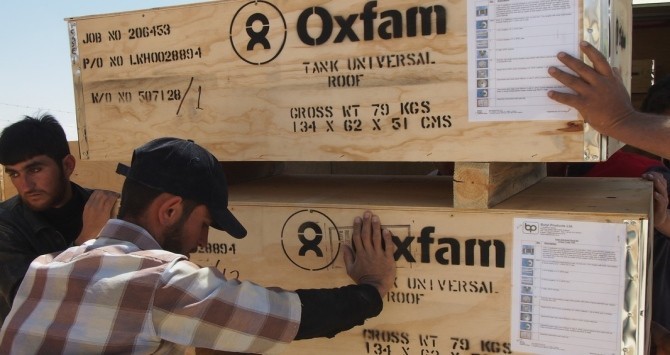An ethical and managerial challenge for everybody.
The Board of Directors and the entire staff of Social Change School unanimously believe the proved and admitted behaviours of Oxfam GB, and possibly similar ones that might be found in other NGOs, to be “intolerable, unjustifiable and greatly detrimental”.
Not only and mainly for the victims of the abuses, but detrimental also to:
- The millions of workers in the sector: people who in many cases paid with their lives for the mission they believe in, while a small number of their coworkers covered their sleazy behaviours behind the same mission. People that in this moment are experiencing profound pain.
- The millions of donors that put their trust in and are involved with NGOs.
- The thousands of people, like those who rely on Social Change School, who follow their dreams and build a career of meaning and social change in the nonprofit sector.
- The other “Oxfam affiliates” in the world who, like Oxfam Italia, work with honesty and transparency.
- The NGO sector in general and its credibility, which is more and more attacked by the press and public opinion, for its inconvenient position of denunciation and intervention on themes that are unpopular nowadays.
- Social Change School reassures its fellows, alumni and followers that none of its partners result involved in any way, neither Oxfam Italia nor Save the Children Italia and Spain. We are keeping in contact with them to follow the developments of the situation, closer than we have ever been to the many friends that work there and that are enduring a great deal of undue suffering in these days.
Our criteria for selecting partners are nonetheless based on solid standards, including quality of management and internal behaviours and on an informational system that so far has proved to be extremely effective. Our partnerships are born, first and foremost, from human relationships rather than “brand” and I have personally never been able to conclude a partnership agreement with a manager I didn’t esteem, no matter how illustrious.
For the avoidance of doubt, when talking about its position, Save the Children UK emphasizes that none of the cases of sexual harassments allegedly committed by members of the staff of the Organization – and reported by media – involves minors or beneficiaries of its projects, but they are related to the inappropriate behaviours of some members of the staff exclusively towards other colleagues. After these accusations, the organization conducted thorough internal investigations aimed to clarify the facts, that lead to 16 layoffs and 10 referrals to police and civil authorities.
We believe these are still very severe matters, even if not comparable to the gravity and extent of the others, which the management of STC commented with in-depth and strict remarks.
In any case, Social Change School invites to clearly differentiate between inappropriate managers on the one hand, and History, impact and commitment of historical organizations like Oxfam on the other. From 1942, millions of people have benefited from the impact and commitment their thousands of honest employees delivered.
- Concerning causes, other than the preliminary and paramount interpretation based on ethics and values, we find some contributing signs of managerial weakness, of which we specifically signal three:
- The unhealthy application of a double standard with different sanctions for different people, rather than a “zero tolerance” principle, that would for sure penalise more in the short term but would be rewarding in the long run (while the opposite is true for tolerance, which rewards in the short term and explodes in the long term).
- The lack of an HR networking and effective informational system, in which the process of recruitment is multi-stakeholder in the informational phase, and in which bad cases are traceable, identifiable and expelled from the sector – rather than hired again by other organizations, like it actually happened.
- The desire to grow and “intervene at any cost” without first sufficiently evaluating the quality of the resources recruited and mobilized or “turning a blind eye” so that the intervention might go on.
- The way we choose candidates for our Masters is characterised by ever-growing cure and has always been focused also on evaluating “personal quality” (professional rigour, responsibility, honesty, “factual history” of the person, and not only competencies). A hard selection, even if it brings the risk to drastically reduce the number of admitted students.
Today, the School and its ecosystem need to help and work together with the management of NGOs, rather than judge, to raise the standards of profession, value and technology of organizations and professionals.
We have always been aware of the managerial complexity of non-profit, always caught between development and values, external impact and internal coherence. A tension that sometimes produces severe tears.
Fifteen years ago I published “Non profit Manager and Management: the Ethical Challenge”. I believe this title, which wasn’t of course crafted by coincidence, is now timelier than ever.
President of Social Change School
Want to know “Why are NGOs and social sector constantly under attack?” Read Marco Crescenzi’s next post here.
Image source: LSE



